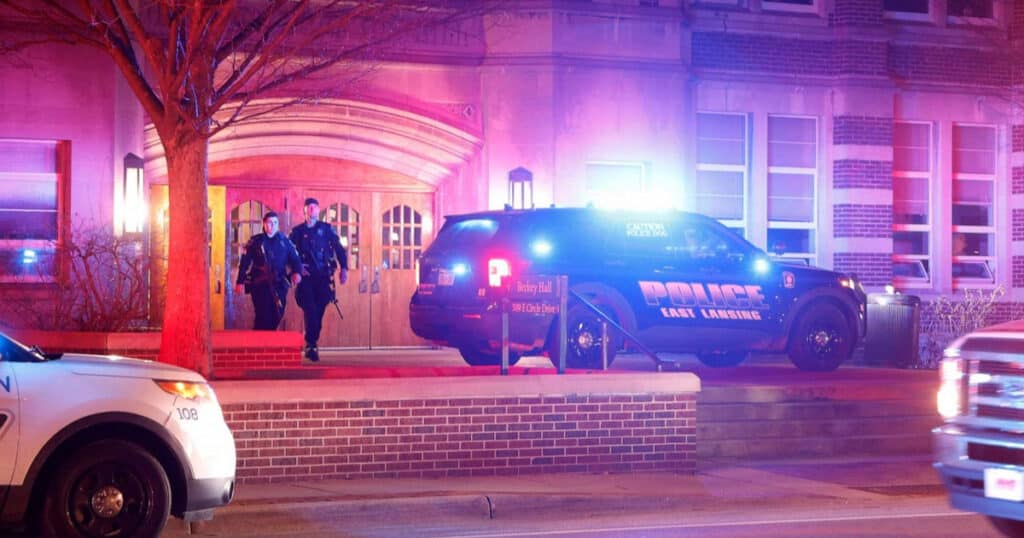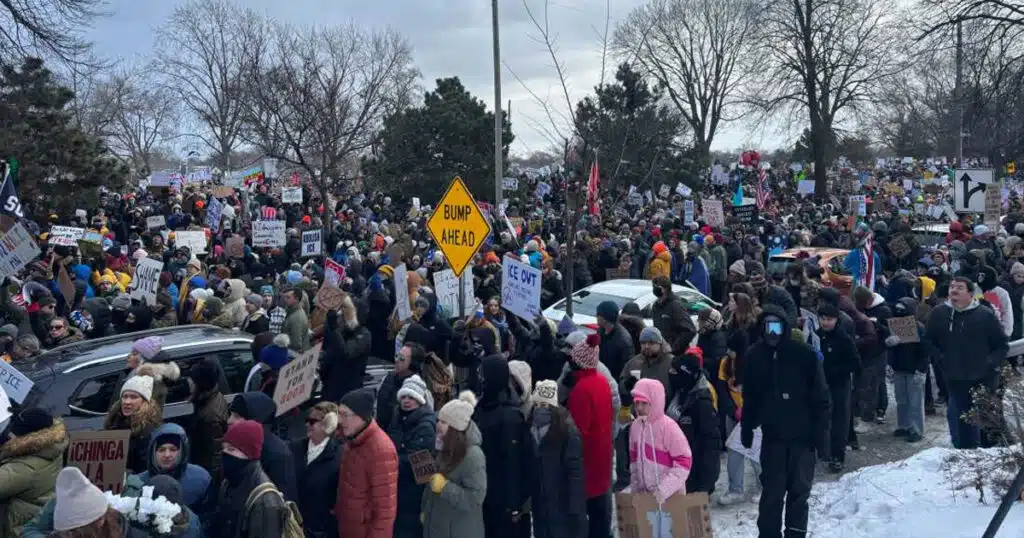
The Michigan State Shooting Blame Game
If you believe tweets from Michael Bloomberg’s The Trace and its employees, I am “one major factor” why the U.S. hasn’t passed stronger gun control laws and thus, they claim, responsible for mass shootings in the United States. These are becoming regular tweets after each mass public shooting.
They are upset that I have quoted mass murderers on their decisions to target gun-free zones. Yet, statements such as, “Areas where CCW are outlawed or prohibited may be good areas of attack” are common among mass murderers.
That doesn’t make sense to gun control supporters. Immediately after this week’s shooting at Michigan State University, President Biden led a chorus of politicians and gun control groups in calling for more gun control laws.
Biden used his speech on Tuesday to call for banning “assault weapons and magazines that hold 50, 70 bullets.” Shannon Watts, who heads Bloomberg’s Moms Demand Action, called for a broad range of laws: background checks for long guns, red flag laws, disarming domestic abusers, banning assault weapons, limiting magazine capacity, and regulating open carry of guns.
None of these proposed laws would have stopped this attack. The murderer, Anthony McRae, used handguns with multiple standard size magazines, not assault weapons with large-capacity magazines – not remotely close to the 50- to 70-round magazines that Biden was describing. More broadly, 58% of mass public shootings are committed only with handguns. Just 14% are committed solely with any type of rifle.
Lax law enforcement, however, did have something to do with this attack. District Attorney Carol Siemon should have prosecuted the Michigan State University murderer for a felony gun charge in 2019. It would have been an easy conviction, but Siemon substituted a misdemeanor charge in the name of “race equity.” A felony conviction means the killer would likely still be in jail.
Ingham County Sheriff Scott Wriggelsworth had argued that East Lansing’s city council should “reconsider her internal felony firearm charging policy,” because it “does not hold people properly criminally accountable, and increases the likelihood of additional gun violence.”
Gun control groups haven’t complained about the DA’s refusal prosecute the murderer for the felony gun charge. But the background checks that these groups champion are designed to stop people with any felony or misdemeanor domestic violence convictions from buying guns. Not that a felony conviction would have stopped the killer from getting a gun anyway, as he could have used someone else’s gun or bought one illegally.
Of course, among the other proposed laws, domestic abusers are already banned for life from owning a gun. Open carry was also not relevant, as the killer used his backpack to carry the guns.
As to red flag laws, McRae did indeed have a history of mental illness, and police performed a welfare check just the week before. But if the police had a “reasonable belief” that McRae posed a danger to himself or others, they already had authority under Michigan’s involuntary commitment law to have him evaluated by mental health care experts. If the mental health care experts agreed that McRae was a danger to himself or others, there would have been an immediate hearing and a lawyer provided if he could not afford one. While judges can involuntarily commit individuals, they have other options such as voluntary mental health treatment and a follow-up hearing or taking away a person’s guns.
Red flag laws start with the same “reasonableness” test but don’t give people a hearing. The judge only sees a written complaint. There are no mental health care experts involved in the process. And the judge is only given the power to confiscate a person’s legally owned guns. If the person is actually dangerous, there are so many other ways to commit suicide or to kill others. Red flag laws ignore due process and are also ineffective.
But the key point here is that the same reasonableness standard applies to both red flag laws and involuntary commitment, and the police didn’t think that McRae met that standard, so a red flag law wouldn’t have prevented this attack.
Gun control advocates keep pushing laws that won’t do anything to stop the crimes in question. Many proponents seem to have little interest in getting tough on crime, and it’s as though they want to make life difficult for law-abiding gun owners and not punish real criminals. Let’s get serious about crime by enforcing existing laws.
This article was originally published by RealClearPolitics and made available via RealClearWire.



